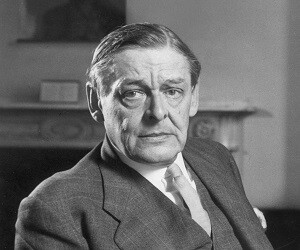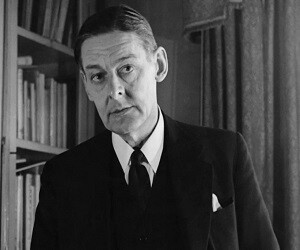

Last Updated: 01 May, 2024 | Views: 907
Age: 76
Profession: Poet
Other Profession(s): Essayist, Playwright, Editor, Publisher, Literary Critic
Famous For: The Nobel Prize in Literature
Higher Education: Harvard University (BA, MA, Ph.D )
About (Profile/Biography)
T.S. Eliot was a renowned poet, playwright, and literary critic. Born in the United States, he spent most of his life in England, where he became a leading figure of the Modernist movement in literature. Eliot's most famous works include "The Waste Land," "The Love Song of J. Alfred Prufrock," and "Four Quartets." He was awarded the Nobel Prize in Literature in 1948 for his contributions to the field.
T. S. Eliot Career:
1906-1909: Eliot attends Harvard University, where he studies philosophy and literature and becomes interested in poetry.
1910: Eliot travels to Paris, where he studies at the Sorbonne and meets writers and artists associated with the modernist movement.
1914: Eliot moves to London, where he works as a teacher and writes literary criticism for publications including the Times Literary Supplement.
1915: Eliot publishes his first poem, "The Love Song of J. Alfred Prufrock," in Poetry magazine. The poem is widely regarded as a masterpiece of modernist poetry.
1922: Eliot publishes "The Waste Land," a long and complex poem that becomes a landmark of modernist literature.
1925: Eliot becomes a British citizen and converts to Anglicanism.
1927: Eliot becomes a director at the publishing house Faber and Faber, where he will remain for the rest of his career.
1935: Eliot's play "Murder in the Cathedral" is performed in London, marking a return to writing for the stage.
T. S. Eliot Notable Works:
"The Love Song of J. Alfred Prufrock" (1915)
"The Waste Land" (1922)
"Four Quartets" (1943)
"Murder in the Cathedral" (1935)
"The Cocktail Party" (1949)
"Ash Wednesday" (1930)
T. S. Eliot Notable Awards:
The Nobel Prize in Literature (1948)
The Order of Merit (1948)
The Presidential Medal of Freedom (1964)
The Dante Medal (1950)
The Tony Award for Best Play (1950)
The Gold Medal for Poetry (1954)


